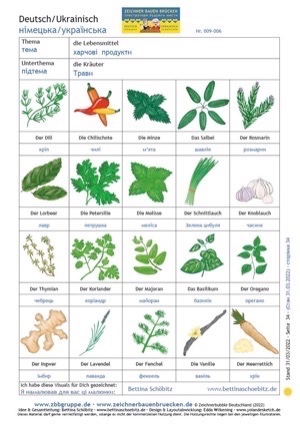Inkjet & Digital Printing
For Ukraine: Konica Minolta Supports Printed German-Ukrainian Picture Dictionary

Tuesday 16. August 2022 - Konica Minolta supports the initiative Drawers Build Bridges in printing and distributing translation picture booklets to refugees from Ukraine. 3,000 hand-drawn picture vocabulary words in Ukrainian-German and 120 pages per DIN A5 booklet.
For the two entrepreneurs Bettina Schöbitz and Edda Wilkening, initiators of the project “Drawers Build Bridges”, it has always been important to express themselves and communicate with people. But how difficult is that for refugees from Ukraine who can neither speak our language nor read our writing? Bettina Schöbitz and Edda Wilkening have therefore developed a picture dictionary on various topics such as “fruit and vegetables”, “going to the authorities” or “family”. With this translation aid – de facto they are sheets of pictures – Ukrainians can make themselves understood better in everyday life. The sheets show a picture for each topic and word family. Underneath is the German and Ukrainian translation of the term – from “apple” to “form” to “twin sister”. In the meantime, 148 picture sheets are online. And within four months now, a voluntary, hand-drawn picture dictionary German-Ukrainian has been created under the title #ZeichnerbauenBrücken.
In addition to the online version, the booklet is now also available as a hard copy. Konica Minolta will not only print the booklet, but also distribute it throughout Germany through its own sales and logistics staff.
Since the outbreak of the war in Ukraine, Konica Minolta has been engaged in targeted activities to help the people in that country. For example, donations were collected to purchase hygiene supplies such as nappies and medicines, which were brought to Ukraine and distributed by Konica Minolta employees. All Ukrainian employees who wished to do so were given accommodation outside Ukraine – some with German Konica Minolta employees, while the majority of the refugee Konica Minolta colleagues and their families were accommodated in Poland.
